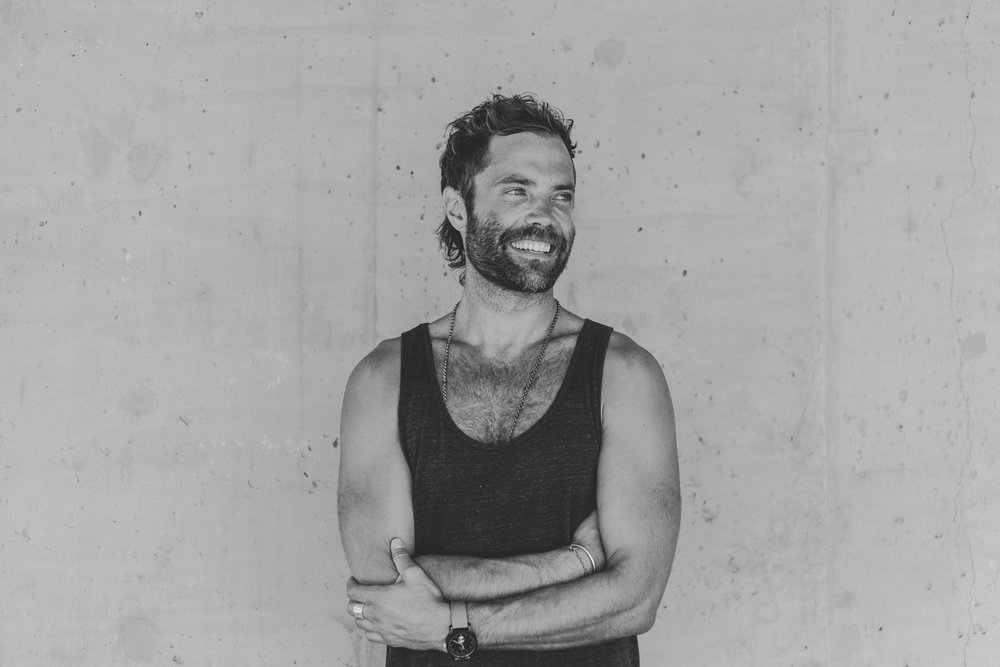
02 Sep A Humble Bow with Whit Hornsberger
“May we honour through practice, the ancient teachings of Classical Yoga and Buddhist meditation for the purpose of removing that which obstructs the innate wisdom of the heart, leading us home to the refuge of our own awareness and the cessation of suffering.”
– Whit Hornsberger
BIO
Whit Hornsberger (Vancouver, Canada) is a student and teacher of the wisdom traditions of Classical Yoga and Theravada Buddhism.
A former athlete, Whit found the path as a result of a career ending knee injury and the subsequent emotional and mental suffering inherent in losing one’s (supposed) self-identity and self-worth. His daily practice and teaching methods stem from the traditional practices of Vinyasa Krama (Krishnamacharya) and Buddhist meditation (Mahasi Sayadaw). A passionate advocate of traditional teachings, Whit expounds the ancient wisdom of these lineages in a relevant manner, making them readily accessible to students at every stage of the path.
A passionate lover of surf, travel and nature, Whit teaches internationally offering classes, workshops, retreats and trainings.
With a personal deep and invested interest in Buddhist meditation and teachings of dharma, I crossed paths with Whit quite some time ago, attending one of his workshops at my home spot, Delight yoga, in Amsterdam. I instantly resonated with Whits teaching and way of being; a genuine teacher immersed in meditation & yogic practices, a beautiful human being and soul who is making a change in the world, offering his guidance and wisdom to practitioners to the way of Inner Peace. I am grateful to be a friend and share beautiful heart centred conversations with Whit and look forward to him sharing his light and love in Europe and around the world. p.s. A little birdie told me that Whit will be at the Inner Peace Conference in Amsterdam this year, October, 2018: innerpeaceconference.org alongside many wonderful and inspiring wisdom teachers 😉 Do not miss the opportunity to listen and practice with Whit all the way from his home town, Vancouver.
Interview
How did you discover the path of yoga & meditation?
I, like many, found my way upon the path as a result of personal suffering. While playing university basketball I suffered a career-ending knee injury and the concomitant loss of my (supposed) self-identity, and thus self-worth, plummeted me into darkness.
At that time yoga was not that prevalent in the world of athletics but fortunately I had been introduced to yoga just prior to my injury and I began applying yogic principles in my self-administered therapy post surgery.
As I began to inquire into the healing of my physical body, and as I pulled back the layers it became obvious that other dimensions of my being were in dire need of attention and love, and the healing of my mind, body and heart began. And from there I have never looked back.
Has your definition of yoga changed over time and how would you describe yoga in your life as it is today?
It certainly has. Upon reflection I realize I had no idea what yoga was when I first found it and in fact before it came into my life, forgive me, but I ignorantly believed it was something only engaged in by women.
Like so many people I came to the practice through the physical body and from there awakened to the depth and boundless beauty of this ancient path. Today I see yoga as a way of being, a state of mental equipoise enabling us to move beyond the limitations of our conditioned past and inhabiting life from the only place one can, the present moment. Yoga to me is a path that catalyses our return home, to our true nature.
Reflecting back on your journey as a practitioner, what was the most profound milestone/s that has shaped who you are as a practitioner today?
I would have to say it was when I first picked up and dove into the Yoga-Sutras of Patañjali. At that time I was drowning in the toxicity of my own mind-states, identifying with them as if they were me. I felt incarcerated, scared and alone. I had always felt there was more to this human life and as I began the study of this ancient wisdom, it expounded that these thoughts, emotions and feelings were not actually me, and that my misidentification with them was the cause of my suffering.
In that moment I felt a spontaneous awakening of my being and it not only made intellectual sense, it resonated on a deep cellular level, as if I already knew this. But owing to the limitations of my conditioned perspective it had been outside the scope of my awareness. This understanding and my continued empirical inquiry into who I truly am has radically changed, and I’d say, saved my life.
Reflecting back on your journey as a teacher, what was the most profound milestone/s that has shaped who you are as a teacher today?
I would have to say there were many. I believe every time I step into the role of the ‘teacher’ I experience profound lessons and milestones. And invariably they are all connected to the same emotional experience – fear.
I never intended to get into yoga or even teach and before I did public speaking was my biggest fear. When I found myself in my first teacher training I realized there was no more running from this fear and that teaching as a profession and confronting my insecurities in a compassionate way was the key to my freedom. In a way I knew I had to teach just to get through that fear and that’s what drove me. Not the thought of becoming a teacher as a profession.
And looking back I think it took at least 5 years of teaching full-time before I fully moved through those fears. And sometimes even today they still arise, but with a healthier relationship to fear, I am no longer identified with and in turn afflicted by it.
What is the biggest motivation for you to keep on journeying on the path of self-enquiry?
Embodied well-being, for both myself and others, human or otherwise and the deeply felt sense that we as a species are nowhere near our innate, collective potentiality.
It excites and inspires me to envision what this world could look like in the future and thus my practice, as a small part of a greater movement, that of social change, motivates me daily.
We are an incredible species and knowing we haven’t even tapped our true greatness is so awe-inspiring. So I practice not only for my well-being in this life but the lives of future generations and as well, if karma and reincarnation happens to be true, I want to come back to a healthier, more altruistic world. I don’t think I can save the world through my practice but it is the Ghandian approach of being the change you want to see in the world that keeps me going.
So I believe that is the substratum from which my motivation arises but as for many, once the fire of self-inquiry has been lit, it’s virtually impossible to ignore and at this point in my journey with yoga, the fire of motivation is self-sustaining.
I believe that’s the thing with this path. It can take years of struggle and requires courageous patience, but at a certain point we all break through and the practice becomes an essential part of our lives. Like breathing, sleeping and eating, my practice now is just part of my existence.
What has been your greatest learning lesson so far?
That everything is ephemeral. I think as a general understanding we all know that all of our experiences are impermanent, but I think typically we as a culture don’t really talk about it or embrace it from an experiential level. But over many years of practice, of watching the attributes of the mind and body come and go, it becomes undeniable that my life is governed by uncertainty.
Yet instead of giving rise to fear, despair and apathy as it once did in my past, I have found that the acceptance of the impermanent nature of my life gives rise to a profound sense of appreciation and gratitude. I am not assured to wake up tomorrow, or guaranteed to still be teaching or surfing next year at this time. Even my perspectives are governed by this law of impermanence. Sometimes I think I know with certainty and then the path shows me otherwise. I think I know, then I don’t know, over and over again. It’s humbling to say the least but I wouldn’t have it any other way and I guess I couldn’t have it any other way even if I wanted to haha.
Empirically knowing that I have little to no control over the conditions which govern my life is so freeing and allows me to find refuge in the enigmatic beauty of each moment, embracing each interaction as preciously unique. Dylan, I feel very blessed to be here my brother!
Currently you are practicing Vipasana meditation in the lineage of Mahasi Sayadaw and also offering Vipasana guided meditation retreats. Can you describe what the practice really is and what it means to you?
 Vipassana in a nut-shell is all about moving beyond the limitations of the conditioned mind, by seeing through, or seeing into the mind’s conditioned preferences, its like and dislikes.
Vipassana in a nut-shell is all about moving beyond the limitations of the conditioned mind, by seeing through, or seeing into the mind’s conditioned preferences, its like and dislikes.
Another way we could think about the practice of insight meditation is that we are training the mind to be with what is, without taking sides for and against (ie: likes and dislikes), without constantly trying to bend and curate our lives to our mind’s conditioned preferences.
As the mind becomes trained through vipassana, we see that everything is ephemeral and uncontrollable and so the mind lets go of trying to control things. It no longer incessantly pulls us towards that which is pleasurable and pushes us away from that which is unpleasant, an exhausting and for the most part antiquated survival strategy.
We thus rest in the refuge of awareness and gift ourselves the opportunity to choose a conscious response in any given situation, no longer at the mercy of habitual survival patterns of reactivity. And from this seat of witness consciousness we begin to see that all of our experiences are governed by unmanageable uncertainty and eventually the innate wisdom of the mind lets go of control and our self-perpetuated suffering ceases.
It’s absolute freedom my brother and I am grateful everyday for the wisdom that has been past down by courageous practitioners in the Buddhist tradition for over 2600 years. What a gift and what a humbling experience to be a part of.
How has this shaped your perspectives on your yoga journey over time?
My experience with the practice of vipassana over the last decade has transformed my perspectives greatly. It is not an easy path that’s for sure, but it is do-able. There is no running from one’s fears and insecurities amidst an intensive meditation retreat and as a result one cannot help but be radically transformed in one’s relationship with the body and mind, with life itself.
There is so much to go into here but I believe the most transformative aspect of my experience with vipassana has been the complete and unconditional acceptance of the way in which my mind functions, creates my experience of the world and perpetuates my suffering.
Through hours upon hours of watching one’s own experience we begin to see clearly the causal relationship of each momentary experience. And from that vantage point understanding arises followed by acceptance and in turn a letting go of trying to control and bend things to the minds liking.
I wouldn’t dare say I don’t suffer and don’t believe I’ll ever, in this life at least, reach the complete cessation of suffering. But my suffering has diminished drastically over many years of practice because I have seen my suffering and I have seen the cause of my suffering. I have seen through what’s causing my pain and accepted it. And from there and only there can things change.
How has Buddhism affected your life and how do you think it can help with today’s problems?
Buddhism is the science of the heart and the philosophy and practices passed down over 2600 years are very dear to me. Yet I wouldn’t call myself a Buddhist, but I am a fan, a big fan! I have a profound love for questioning my reality, for wisdom and the knowledge with which the Buddha empirically derived through his own courageous efforts resonates with me very, very deeply.
I believe the purpose of his teachings is to find our way home, to awaken to our own Buddha (awakened) nature, to move beyond social and cultural conditioning. And this heroic approach to life has positively affected every aspect of my existence. I can’t imagine life without this intellectual and experiential knowledge, without these practices. As for how it can help with the current difficulties we face as a species – I feel it comes down to that Ghandian approach again. “Be the change you want to see in the world.”
I would love to save the world, I mean wouldn’t that be epic. Maybe I’d get to wear a cape whilst I do it, be a real superhero! But realistically the most important thing we can each do is to cultivate unconditional self and altruistic love within our own hearts. Whether Buddhism or Yoga, Islam, Christianity, Atheism or whatever path we find ourselves upon, if we all focus upon opening our hearts to our true nature, our interconnected existence with each other, the ship will right itself and the paradigm will turn around. And I wholeheartedly believe we can, otherwise I wouldn’t be on this path.
As a Dharma practitioner, what is the most essential thing for students – new and old – to remember?
Be patient. In one of the Buddha’s first sermons he stated that “patient endurance is the supreme practice for freeing the heart from unwholesome states.” This path is arduous and difficult, of that there is no doubt. I spent years in misery and if I weren’t so stubborn and driven to cultivate inner peace, I might have given up.
But I am glad I didn’t for it was well worth it. Not to say I don’t face difficulty. I do. Daily. I just have a different way of working with challenges so as not to compound and exacerbate them, giving rise to needless suffering.
So be patient, be kind and be compassionate to yourself, to your mind and to your body. We are all doing the best we can with where we are at and this path can only give back when it is built upon the pillars of loving acceptance and non-judgmental self-awareness.
As soon as we speak of the different age, they say now it is Kali Yuga now, the new era that influences how we develop, how we study yoga. What do you think about it?
I think it would be hard for me deny what I see taking place in the world. There’s no question that I have been born into an era of existence characterized by greed, power and self-interest. It can be overwhelming at times and difficult not to fall into apathy and despair.
But if the ancient yogis are correct in that we are part of a cycle, and right now we are moving through the dark stages of our cyclical human journey, then instead of falling into the darkness, it lifts me up, it motivates me.
I mean perhaps we have all been reborn at this time because we are the generations of humans that have been chosen through karmic inheritance to right the ship. In a way I feel honoured and humbled to have an opportunity to live in a day and age where practices like yoga are flourishing. What a gift. So although it’s a pretty depressing world at times, there is so much beauty and the importance of being a practitioner at this time is vital.
It may be difficult at times to see how the minute changes in our own being will affect the future outcome but when we become privy to the mechanism of causality, there is no doubt in my mind that each and every moment that I am practicing, both on and off the mat, I am contributing to a social movement that one day will reap great benefit to humankind and all living species. There is perhaps no greater time in history for the cultivation of an altruistic way of living and I am blessed to be given the chance to make a difference, beginning with my own heart.
And lastly, without question, I see palpable changes taking place out there. The vibration of our collective conscience is elevating, there’s no denying that in my mind. So let’s keep the ball rolling…
What makes you happy?
 I believe that happiness is our true nature so it’s not really about anything that makes me happy but removing the impediments and obstacles that obscure my innate state of pure joy.
I believe that happiness is our true nature so it’s not really about anything that makes me happy but removing the impediments and obstacles that obscure my innate state of pure joy.
When I am present and mindfully abiding within the refuge of my true nature of awareness I feel a joy and happiness, that trumps anything I have ever experienced in the realm of conditions.
In the West I hear a lot about unconditional happiness. But from my experience there is only one happiness and that’s unconditional. Whenever I feel ‘happy’ based on things happening one way or another, ie conditions, it feels good, I feel high, but that is only pleasure, and pleasure is not happiness. And ‘happiness’ based upon conditions is a risky game to play because conditions are inherently impermanent, they don’t last forever. Conditions change and when they do we suffer if we have become attached.
So as cliche as it is, what makes me happy is being in the now. From that state of being I find happiness everywhere. I love laughing. As my dad, a great teacher taught me, even if people are laughing at me, as long as they are laughing, that makes me happy. Connecting with others on a deep hearted level, with loving presence, is utterly joyful.
In the realm of conditional happiness, without doubt what makes me happiest is surfing. I love it. But again, even with surfing, that happiness arises because the whole surfing experience is about being in the now, being one with the moment. Traveling and spending time in the ocean, riding mother nature’s energy lines is an experience of pure bliss. But I know it won’t last forever. My body will break down and from my walker and bifocals I’ll just mind surf from the beach. But that’s great fun too!
Ultimately so many experiences bring me great joy but they all have one commonality and that’s being fully immersed and present within the experience.
What are some key principles you live by?
Don’t take things personally and take accountability for your internal experience. Nobody is making me feel this way or that way. I am responsible for my well-being and it’s an empowering realization.
And love. Love is what this is all about. We are all interconnected and I try and visualize myself in others. We may be in different vessels but we are all connected. And lastly is that as far as I know right now, this is my only chance at life. Maybe I’ll be surprised and come back, hopefully as a dolphin or a bald eagle. But for now all I can say for sure is that this is my only life and it is precious. Living it fully and loving myself and others wholly are the foundation upon which my life stands.
How can we practice when we have “so little time”?
As one of my teachers teacher, the revered Thai forest master said: “If you have time to breathe, you have time to practice.”
I think it takes time to see but gradually over years of practice we will begin to experience a powerful shift in our way of being and the practice no longer is relegated to our time on the mat or on the cushion.
Having said that these more gross forms of our practice are vital but every single moment of each day we have the opportunity to practice.
One way in which I love how the first sutra of Patanjali’s Yoga-Sutras ‘atha-yoga nusasanam’ is translated is ‘Now the Practice of Yoga’. As in there is only the present moment. The past and future do not actually exist so every second there is a new now. We are born again into a new moment and then that moment ceases and we are then born again into another moment. So there is a now, then another now, ad infinitum.
So according to this translation of the first sutra, we have infinite opportunities to practice yoga. For example: Perhaps in the moment just passed, I lost my centre, reacted from the sense of my small self and caused suffering for myself and potentially others as well. Well not to worry. Right away in the subsequent moment we have yet another ‘now’, another opportunity to practice, to choose a conscious response instead of succumb to the mercy of habitual reactivity.
So there is no shortage of chances to practice but having said that it’s very difficult to practice like that in the moment when there is no foundation created through the grosser forms of practice, ie our formal practice. But without question, over time and through ceaseless effort we can practice in every single moment and move beyond the limitations of the conditioned mind, beyond the likes and dislikes and abide in the peaceful refuge of non-judgmental witness consciousness.
But it takes time and patience is imperative. So in the beginning we just do the best we can. At first there will long gaps between the frequency of our formal practice. Over time however, as the fruits of our labours manifest, faith arises and magnetically we are drawn back time and time again to the formal practice, the gaps between practices diminish and eventually instead of our practice being something we need to ‘fit in’ to our daily schedule, our practice becomes an essential aspect of our life and it just flows, it becomes effortless and life and practice unite to become one and the same. But as mentioned above, be patient. There is no finish line to race towards. Let your practice unfold naturally and all will fall into place.
Speaking about the sacred scriptures and books, what kind of a book would you advise to read, (for those who practices yoga) to go into yoga more deeply – to be more conscious of not only the physical aspect of yoga?
Yoga specifically, there is no question. The Yoga-Sutras of Patanjali are a must I believe. Much of it is rather esoteric no doubt and perhaps not very relevant to the path of the contemporary practitioner but the foundation of these teachings, especially Pada (Chapter) 1 & 2 are life changing. There are so many translations/commentaries and I recommend diving into more than one of them to get a well rounded perspective on what was and is for me life changing wisdom.
For a read on Buddhist theory and teachings I would have to say Food for the Heart, the Collected Teachings of Ajahn Chah.
Now like anything new to our minds, if yogic philosophies and concepts are new to us these above titles will contain a lot that makes little sense, coupled with confusing Sanskrit and Pali terminology and some of it will be very confusing.
But what is so beautiful is that if we read and re-read books like the above and combine them with dedicated practice, gradually over time the intellectual knowledge and the innate wisdom arising from experiential understanding will coalesce and it all starts to make sense. It’s actually the most inspiring and uplifting thing to be confused at one time by the teachings but then to understand them, not just on an intellectual level but most importantly through experiential wisdom.
This approach of self-study (svadhyaya) actually acts as a beautiful barometer for our practice and we begin to see how our experience teaches us, how we teach ourselves through the development of awareness.
As a teacher, what would be your wishes to the readers of this interview/any words of wisdom you would like to part?
My wishes. That all beings awaken to the realization that there is nothing to attain here, that as cliche as it sounds, all the wisdom and knowledge needed to live your life to its fullest is already within you. These paths are about removing the impediments that cloud our true nature.
In the words of the Buddha, ‘we have dust in our eyes’. If you have something in your eye what do you do? You remove it. You don’t try to become something other than you are because guess what, the dust will still be there and the eye will continue to be irritated. So we just remove what is in the eye and voila, we can see clearly. So too with the practice.
In other words you don’t have to become other than what you are right now. You need only to put forth the effort required to clear the dust out of our eyes, so we can reawaken to our inherent beauty, our true nature, pure awareness.
And also please know that you can do this. There is no question and zero doubts in my mind that you can awaken and move beyond your suffering and live the most beautiful life. It is your birthright. Please do not ever forget that.
Finally, don’t be too serious about it all. Don’t take yourself too seriously. Laugh at yourself. Laugh as much as you bloody well can! And have a beer or glass of wine here and there. Live, learn, love and awaken!
Connect with Whit on Social Media:
website: https://www.whithornsberger.com
Vimeo: https://vimeo.com/soularchyoga
FB: https://www.facebook.com/soularchyoga/
IG:https://ww.instagram.com/whit_hornsberger
Twitter: https://twitter.com/soularchyoga?lang=en
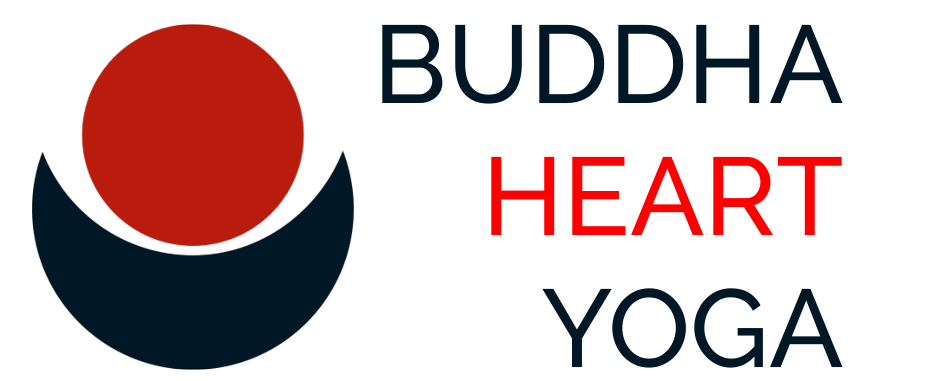


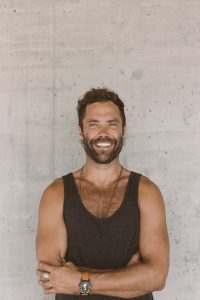
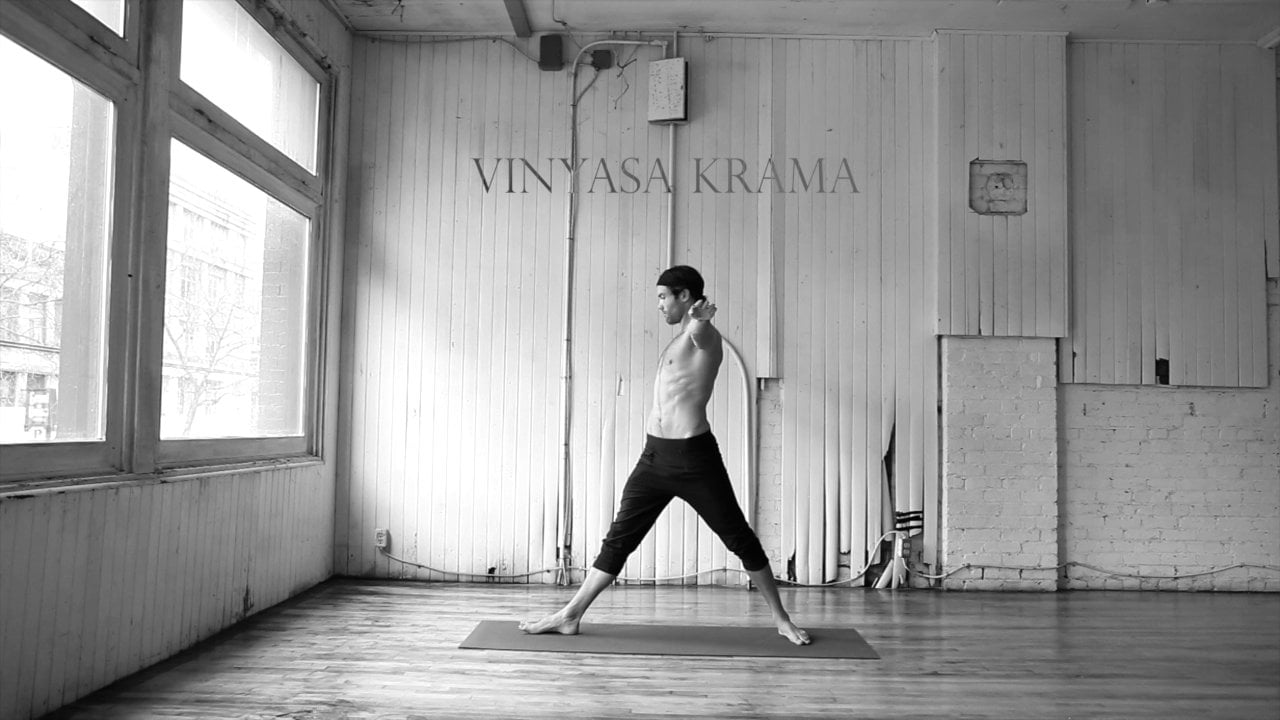
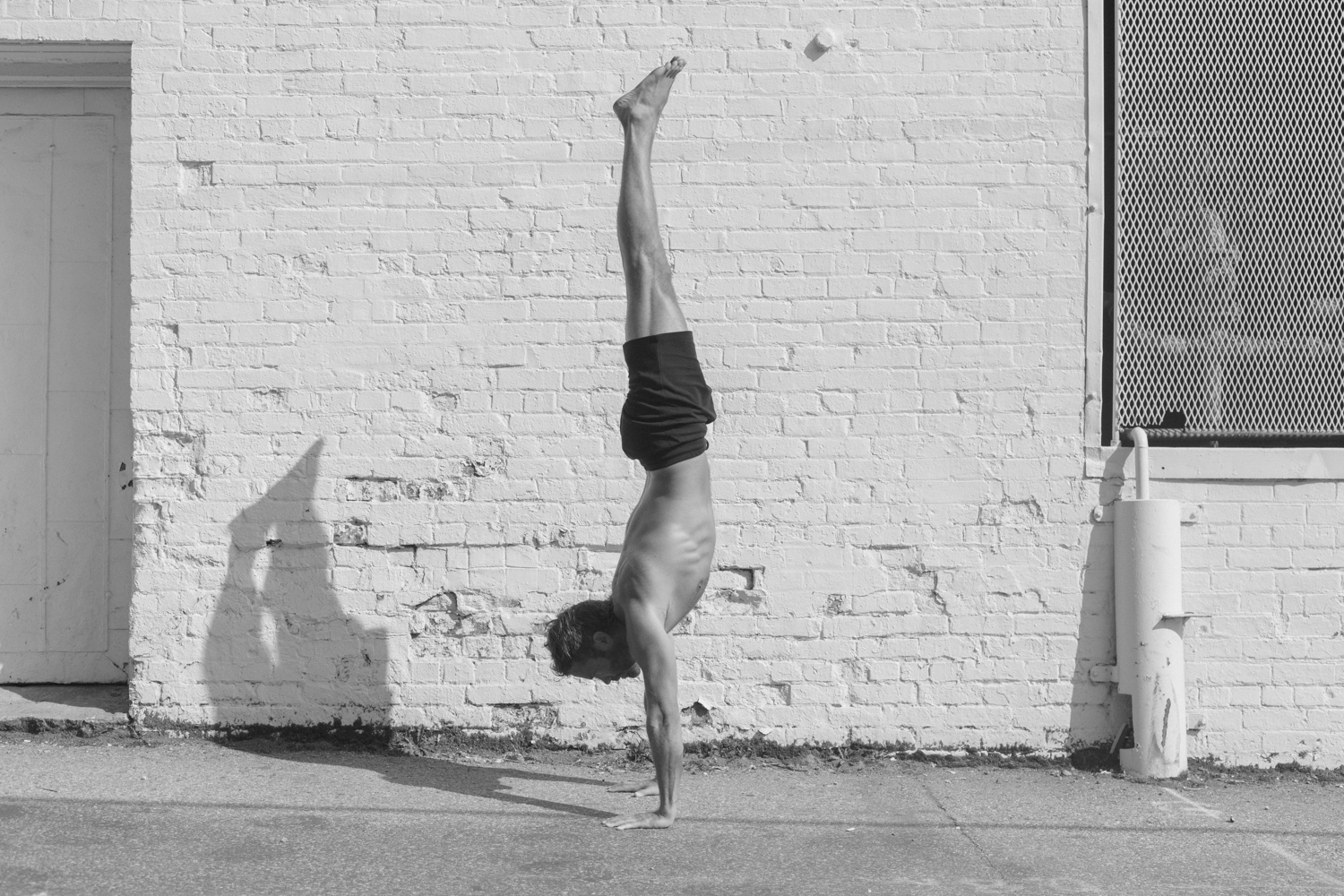
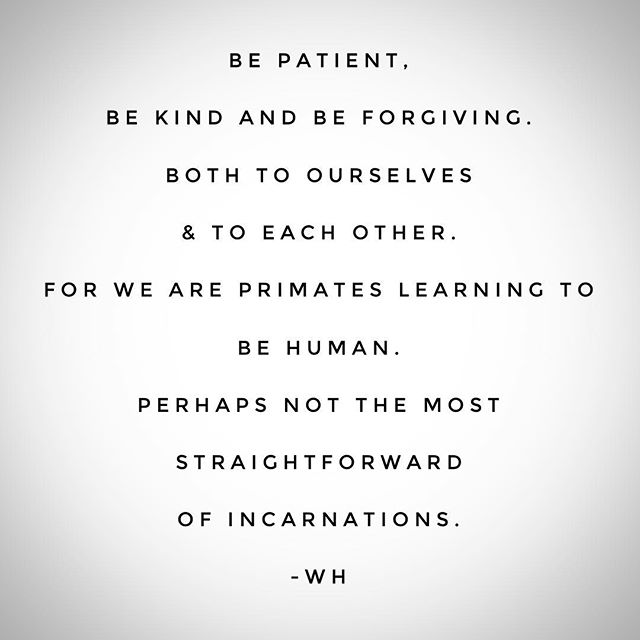
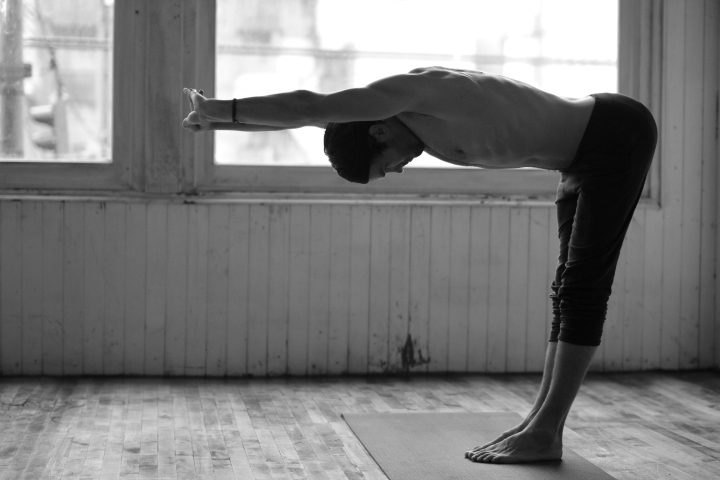

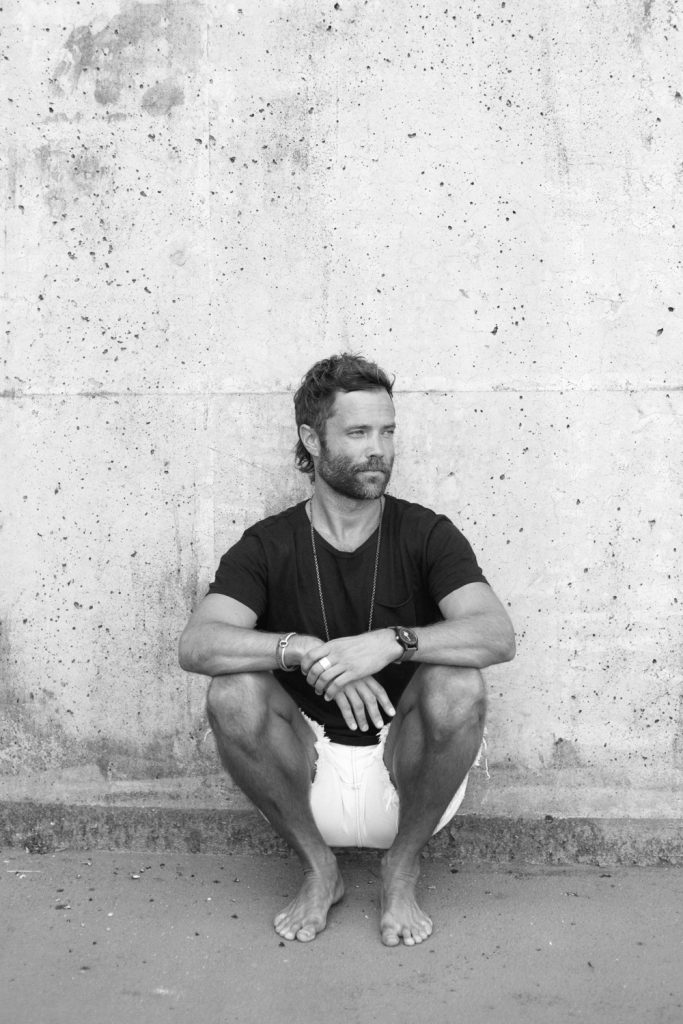
Sorry, the comment form is closed at this time.